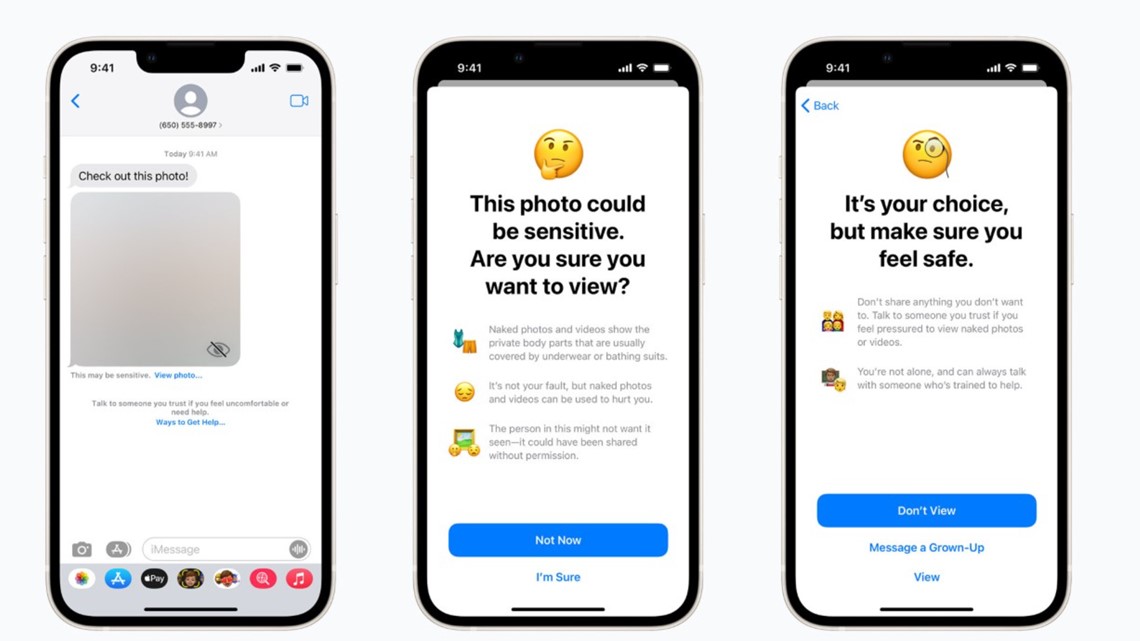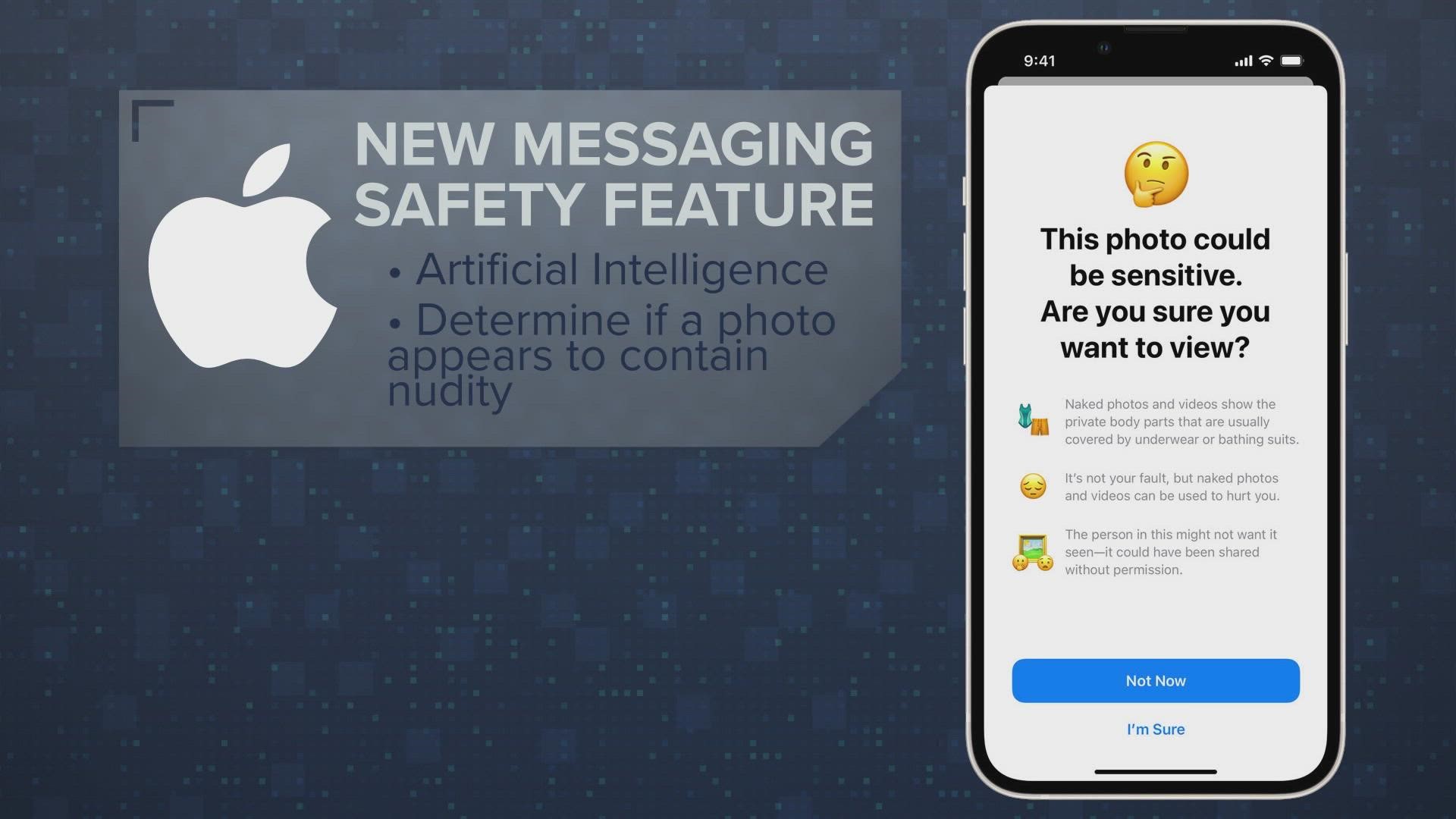Whenever I’ve discussed the topic of Digital Parenting with other moms and dads, few issues seem to generate as much concern as the rise of sexting and the sharing of nudes by underage teens.
Parents have a reason to be concerned.
According to a survey by non-profit digital safety advocate Thorn, almost 1 in 5 teens under the age of 18 say they’ve sent a nude image or video of themselves to someone else. And almost 40% of teens see the practice as normal.
It’s not hard to imagine the potential for disastrous outcomes.
“They shared a nude with their boyfriend and the boyfriend goes and shares it all over in middle school,” says Sarah Gardner, VP of External Affairs for Thorn.
But the risks don’t stop with the potential for public embarrassment. In the wrong hands, this material can be used by scammers who are looking to exploit kids.
“That’s what we call sextortion, where an individual will get a sexually explicit image of that child and then blackmail that child for either more explicit content, monetary goods, or to meet out in the real world to engage in sex,” says Callahan Walsh, Executive Director of the National Center for Missing & Exploited Children.
The sextortion problem has grown so big it’s caught the attention of the FBI. The agency blamed the crime for one teen’s recent suicide.
To fight back, the Bureau recently launched a website and publicity campaign aimed at increasing awareness about the issue.
Tackling the problem has been difficult. For many teens in dating relationships, the commonplace sharing of nudes has replaced aspects of dating that many adults experienced during their own adolescence. But even private sharing between dating teens has some very serious implications.
“Basically when a child takes a nude photo of themselves and it’s put online and if an adult gets ahold of that photo or video, they basically are in possession of child pornography,” Fort Worth Police Detective Andrew Matthews said. “And that’s a crime. Felony crime in the state of Texas.”
It’s a serious matter with no easy solution. Increasing access to connected devices combined with the natural curiosities of youth mean parents and child advocates have to adopt a novel approach.
“With a phone in their hands, there’s sort of this collision of tech in puberty and online exploration or sexual exploration that at that age is normal,” Gardner said. “We have to remember that it’s just now we have this added factor of access to the Internet. It’s not necessarily a bad thing that they’re going through puberty and exploring it. Instead, it’s how are you preparing your kids for those worlds and building trust with them so that they’ll come to you when something goes wrong.”
Yet again, when it comes to Digital Parenting the greatest tool is conversation. Knowing your child, their online habits, and encouraging an open dialogue. Parents can’t be around their kids 24/7, but studies show that setting expectations in a healthy environment leads to kids making smarter decisions even when mom or dad isn’t around.
“We know the teen brain doesn't understand and they're not fully developed and able to see the consequences of their actions. They are risk takers and even teenagers who have a really good head on their shoulders are prone at times to making an unhealthy choice, especially when it comes to being with their peers or in a romantic relationship,” said Kim Muench, Founder of the Real Life Parent Guide. “One of the things we can do is have important and ongoing conversations about this and the impact that this does have on us.”
Much of the conversation is focused on changing attitudes about who’s to blame when someone’s nude image gets leaked.
Recent research shows a nearly even split among teen attitudes about who’s at fault when someone’s private image gets leaked - between the victim and the person who re-shared it. Experts say that has to change.
“If kids can make it uncool to share someone else’s image … that could be a huge game changer because it happens very fast, right?” Gardner said. “One kid shares it with another and all of a sudden it’s all over school and you can’t put the genie back into the bottle. Trying to reduce the amount an image gets shared is absolutely a goal.”
Changing attitudes around shame is also key. When teens are shamed or embarrassed about a bad decision, they’re less likely to seek help they may need if they’re caught in a bad situation.
“You need to separate the behavior that they did and being unhappy about that from the essence of who they are,” Muench said. “Yelling at them, lecturing them, making them feel bad about who they are, is the last thing you want to do.”
This can be a lot to process for parents. But thankfully they’ve got plenty of help. In addition to the FBI’s anti-sextortion website, The National Center for Missing & Exploited Children has created several online resources to help families navigate the threats.
And then there’s Thorn for Parents and StopSextortion.com, geared toward helping educate both parents and their kids about the risks, consequences, and steps to stay safe.
Phone makers have stepped up, too.
Apple recently introduced a new messaging safety feature using artificial intelligence to determine if a child on a family share account tries to send or receive a nude image. The image is blurred and accompanied by an explanation about why it isn’t immediately available. And then the child is given resources to message a trusted source for help if they need it.


While these efforts might not be able to stop kids from being kids, the hope is they can shift the attitudes around risks so the teens realize just what’s at stake when they share revealing images and videos. And by changing attitudes on re-sharing, the threat of humiliation – or worse – can be reduced.
The end result is hopefully kids who are safer online and parents who’ve built a positive, healthy relationship with their children that can last a lifetime.
“That’s why being actively engaged is really that dual benefit of maybe seeing what’s happening in that environment,” Gardner said. “But your kid also has the benefit of a parent who’s really interested in what they’re doing.”

